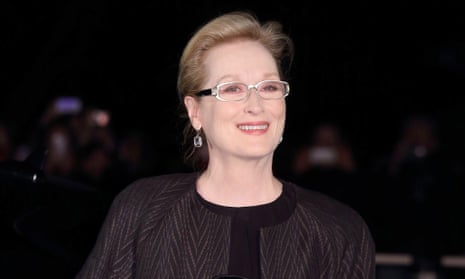She led the applause during Patricia Arquette’s famous speech demanding equal pay in Hollywood at February’s Oscars and has been an outspoken proponent of improving diversity in the film industry. But Meryl Streep, the three-time Oscar-winner and star of new historical drama Suffragette, sidestepped the question when asked by a journalist whether she considers herself a feminist.
In an interview with Time Out to promote Sarah Gavron’s film about the fight for women’s right to vote in the UK, Streep was asked: “Are you a feminist?” Her response: “I am a humanist, I am for nice, easy balance.”
The actor’s reply was in marked contrast to the answers given by co-stars Carey Mulligan and Romola Garai to identical queries from journalist Cath Clarke. Mulligan, who plays working class washerwoman turned political activist Maud Watts, responded simply: “Yes.” Garai, who stars as MP’s wife Alice Haughton, replied: “I think you know the answer to that question. Yes!”
All three women have attacked sexism in Hollywood while promoting Suffragette, which will open the London film festival on 7 October in its European premiere.
Streep, who plays women’s rights activist Emmeline Pankhurst in a brief but noteworthy appearance, was clearer when asked by Clarke which “single thing” she would change in the film industry to make it less sexist. “Men should look at the world as if something is wrong when their voices predominate. They should feel it,” she said. “People at agencies and studios, including the parent boards, might look around the table at the decision-making level and feel something is wrong if half their participants are not women. Because our tastes are different, what we value is different. Not better, different.”
Mulligan replied simply: “Equal pay” to the same question, while Garai offered: “We need more women directors. I think there should be quotas in film schools, or at least funds set aside. What I worry about is that too many women are attracted to acting or producing. The only way you can force through change is when people aren’t choosing between five men and one woman.”
Streep’s comment appears to have disappointed feminist bloggers. “Meryl Streep not wanting to use the word ‘feminist’ in reference to herself, when everything she’s been doing lately screams ‘feminist’ has me scratching my head so hard I’m starting to see scalp,” wrote Teresa Jusino of The Mary Sue. Jezebel’s Joanna Rothkopf lamented: “In early September, Streep sent a package to each member of Congress urging him or her to support the Equal Rights Amendment, which would make it illegal to discriminate against women. She whooped when Patricia Arquette spoke about equal pay at the Oscars ... But for some reason she doesn’t feel comfortable calling herself a feminist.”
Suffragette, directed by Brick Lane’s Gavron and based on a screenplay by The Iron Lady’s Abi Morgan, also stars Helena Bonham Carter, Anne-Marie Duff and Brendan Gleeson. The film is due for a nationwide UK release on 12 October following its LFF debut, and is due for a limited release in the US on 23 October, having world-premiered at the Telluride film festival last month.

Comments (…)
Sign in or create your Guardian account to join the discussion